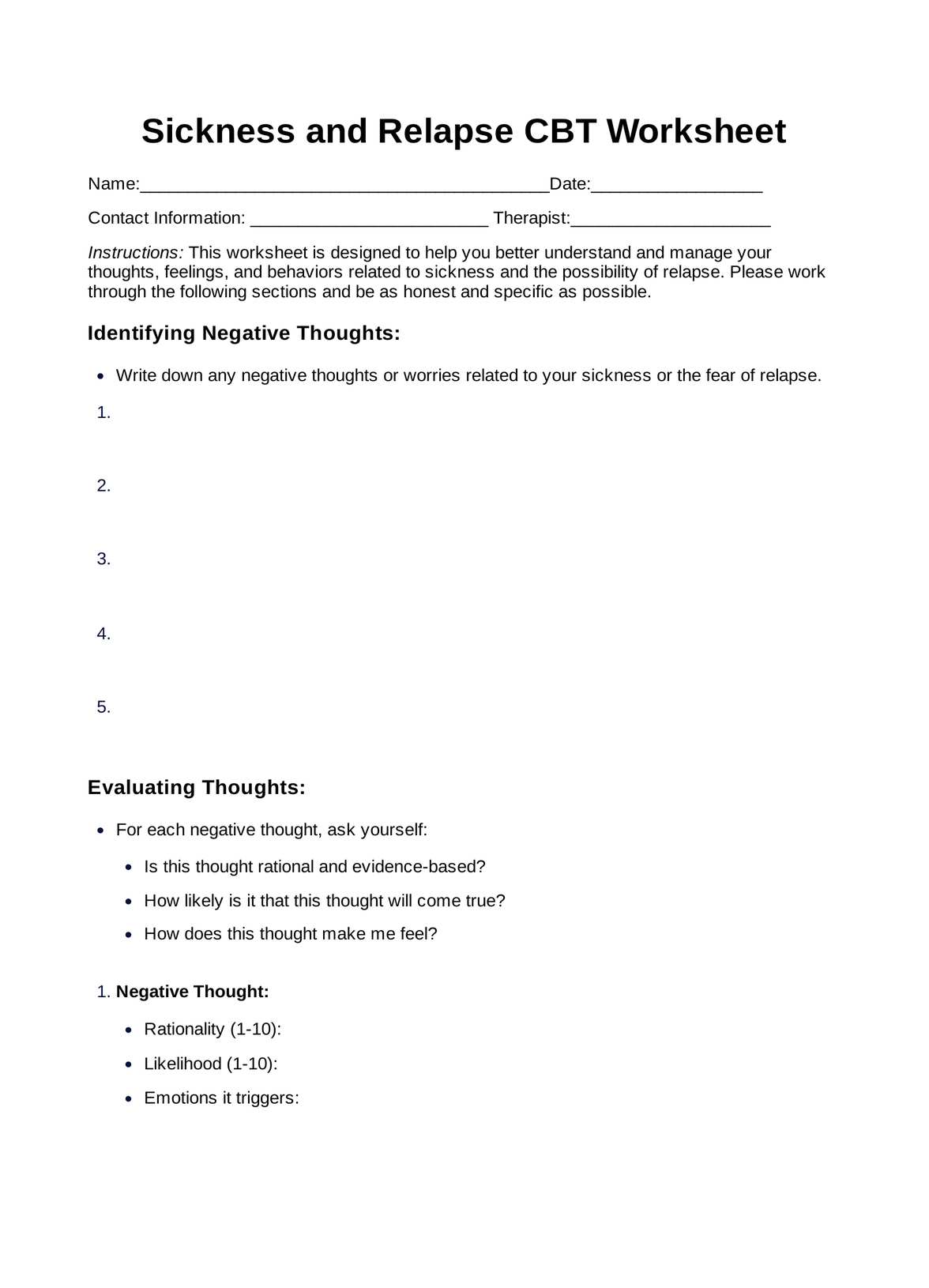This worksheet benefits individuals dealing with chronic illness, the fear of relapse, or health-related stress. It's also a valuable resource for healthcare professionals, therapists, and counselors to guide clients in managing the psychological aspects of sickness and relapse.

Sickness and Relapse CBT Worksheet
Improve healthcare with our Sickness & Relapse CBT Worksheet, incorporating The Rest Technique DBT Worksheet for holistic recovery.
Sickness and Relapse CBT Worksheet Template
Commonly asked questions
Start by identifying your negative thoughts about sickness and relapse, then evaluate them for rationality and likelihood. Challenge these thoughts with more balanced alternatives. Next, list coping strategies and create an action plan to apply them in real-life situations.
The Sickness and Relapse CBT Worksheet is not a substitute for professional therapy or counseling. It is a self-help tool that can complement therapeutic interventions or serve as a guide for self-reflection. Individuals with severe mental health concerns should seek the guidance of a qualified mental health professional.
EHR and practice management software
Get started for free
*No credit card required
Free
$0/usd
Unlimited clients
Telehealth
1GB of storage
Client portal text
Automated billing and online payments











